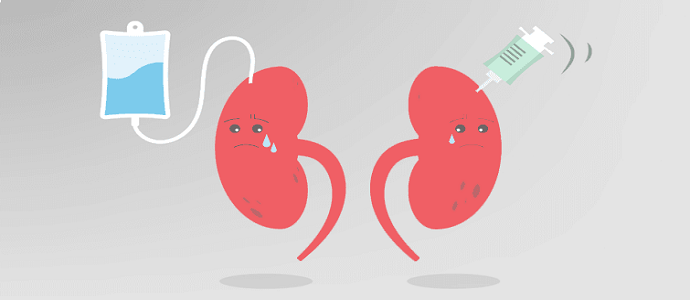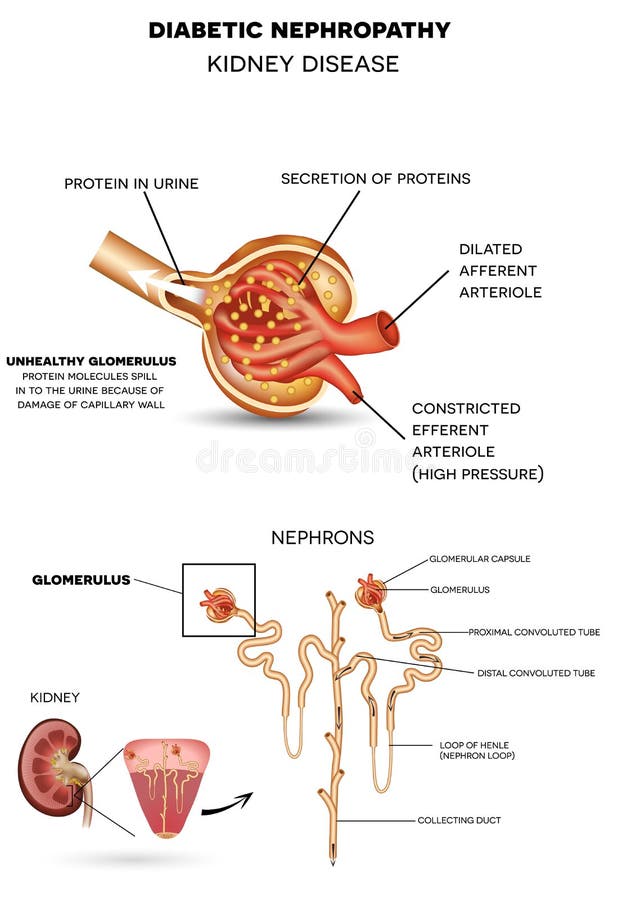Diabetes Nefropati
To reduce your risk of developing diabetic kidney disease: 1. treat your diabetes. with effective treatment of diabetes, you may prevent or delay diabetic kidney disease. 2. manage high blood pressure or other medical conditions. if you have high blood pressure or other conditions that increase your risk of kidney disease, work with your doctor to control them. ask your doctor about tests to look for signs of kidney damage. 3. follow instructions on over-the-counter medications. when using no Diabetic neuropathy is a serious and common complication of type 1 and type 2 diabetes. it’s a type of nerve damage caused by long-term high blood sugar levels. the condition usually develops. Diabetic neuropathy is a type of nerve damage that can occur if you have diabetes. high blood sugar (glucose) can injure nerves throughout your body. diabetic neuropathy most often damages nerves in your legs and feet.
Diabetic Neuropathy Types Symptoms Prevention Treatment
Diabetic nephropathy is a serious kidney-related complication of type 1 diabetes and type 2 diabetes. it is also called diabetic kidney disease. about 25% of people with diabetes eventually develop kidney disease. diabetic nephropathy affects your kidneys' diabetes nefropati ability to do their usual work of removing waste products and extra fluid from your body. Diabetic nephropathy is a type of progressive kidney disease that may occur in people who have diabetes. it affects people with type 1 and type 2 diabetes, and risk increases with the duration of.
Diabetes care28:176–188, 2005 definition and epidemiology— diabetic nephropathy is the leading cause of chronic kidney disease in patients starting renal replacementtherapy(1)andisassociated with increased cardiovascular mortality (2). diabetic nephropathy has been classicallydefinedbythepresenceofproteinuria 0. 5 g/24 h. In the early stages of diabetic nephropathy, you may not notice any signs or symptoms. in later stages, the signs and symptoms include: 1. worsening blood pressure control 2. protein in the urine 3. swelling of feet, ankles, hands or eyes 4. increased need to urinate 5. reduced need for insulin or diabetes medicine 6. confusion or difficulty concentrating 7. shortness of breath 8. loss of appetite 9. nausea and vomiting 10. persistent itching 11. fatigue. Diabetic nephropathy is a serious kidney-related complication of type 1 diabetes and type 2 diabetes. it is also called diabetic kidney disease. about 25% of people with diabetes eventually develop kidney disease. diabetic nephropathy affects your kidneys' ability to do their usual work of removing waste products and extra fluid from your body. the best way to prevent or delay diabetic nephropathy is by maintaining a healthy lifestyle and treating your diabetes and high blood pressure. over man Anyone who has diabetes can develop neuropathy, but these risk factors make you more likely to get nerve damage: 1. poor blood sugar control. uncontrolled blood sugar puts you at risk of every diabetes complication, including nerve diabetes nefropati damage. 2. diabetes history. your risk of diabetic neuropathy increases the longer you have diabetes, especially if your blood sugar isn't well-controlled. 3. kidney disease. diabetes can damage the kidneys. kidney damage sends toxins into the blood, which can lead
Diabetic Neuropathy Types Symptoms Prevention Treatment
In patients with type 1 diabetes, hypertension is usually caused by underlying diabetic nephropathy and typically becomes manifest about the time that patients develop microalbuminuria. in patients with type 2 diabetes, hypertension is present at the time of diagnosis of diabetes in about one-third of patients. Your risk of diabetic nephropathy is greater if you have type 1 or type 2 diabetes. several other factors may increase your risk of diabetic nephropathy, including: 1. high blood sugar (hyperglycemia) that's not well-controlled 2. high blood pressure (hypertension) that's not controlled 3. being a smoker 4. high blood cholesterol 5. a family history of diabetes and kidney disease. Diabetes can harm your nerves. that damage, called neuropathy, may be painful. it can happen in several ways, and they all seem to be related to blood sugar levels being too high for too long. to. The exact cause likely differs for each type of neuropathy. researchers think that over time, uncontrolled high blood sugar damages nerves and interferes with their ability to send signals, leading to diabetic neuropathy. high blood sugar also weakens the walls of the small blood vessels (capillaries) that supply the nerves with oxygen and nutrients. however, a combination of factors may lead to nerve damage, including: 1. inflammation in the nerves caused by an autoimmune response. the immune
Diabetic Nephropathy Diagnosis Prevention And Treatment
Important Tips On How To Find The Best Shoes For Diabetes

Foods That Diabetics Should Avoid

Nefropati diabetik adalah jenis penyakit ginjal, yaitu nefropati, yang termasuk ke dalam komplikasi diabetes. diperkirakan sekitar 20-40% orang dengan diabetes melitus akan mengalami nefropati diabetik jika gula darah tidak dikendalikan dengan baik. kerusakan ginjal akibat diabetes ini juga bisa diabetes nefropati berdampak fatal jika anda mengabaikannya. Diabetic neuropathy is a type of nerve damage that can occur if you have diabetes. high blood sugar (glucose) can injure nerves throughout your body. diabetic neuropathy most often damages nerves in your legs and feet. depending on the affected nerves, symptoms of diabetic neuropathy can range from pain and numbness in your legs and feet to problems with your digestive system, urinary tract, blood vessels and heart. some people have mild symptoms. but for others, diabetic neuropathy can be qui
Diabetic neuropathy can cause a number of serious complications, including: 1. loss of a toe, foot or leg. nerve damage can make you lose feeling in your feet. foot sores and cuts may silently become severely infected or turn into ulcers. even minor foot sores that don't heal can turn into ulcers. in severe cases, infection can spread to the bone, and ulcers can lead to tissue death (gangrene). removal (amputation) of a toe, foot or even the lower leg may be necessary. 2. joint damage. nerve There are four main types of diabetic neuropathy. you can have one or more than one type of neuropathy. your symptoms will depend on the type you have and which nerves are affected. usually, symptoms develop gradually. you may not notice anything wrong until considerable nerve damage has occurred. See full list on mayoclinic. org.
Complications of diabetic nephropathy may develop gradually over months or years. they may include: 1. fluid retention, which could lead to swelling in your arms and legs, high blood pressure, or fluid in your lungs (pulmonary edema) 2. a rise in potassium levels in your blood (hyperkalemia) 3. heart and blood vessel disease (cardiovascular disease), possibly leading to stroke 4. damage to the blood vessels of the retina (diabetic retinopathy) 5. anemia diabetes nefropati 6. foot sores, erectile dysfunction, di Systemblodtrycket börjar stiga under denna fas, hypertoni är mycket vanligt vid diabetes typ 2. manifest, klinisk nefropati 10-20 år albuminurin ökar till makroalbuminuri (se tabell). njurfunktionen (glomerulära filtrationshastigheten, gfr) börjar sakta sjunka. blodtrycket stiger, vid typ 1-diabetes till en början ofta inom normalområdet. More diabetes nefropati images.
Comments
Post a Comment